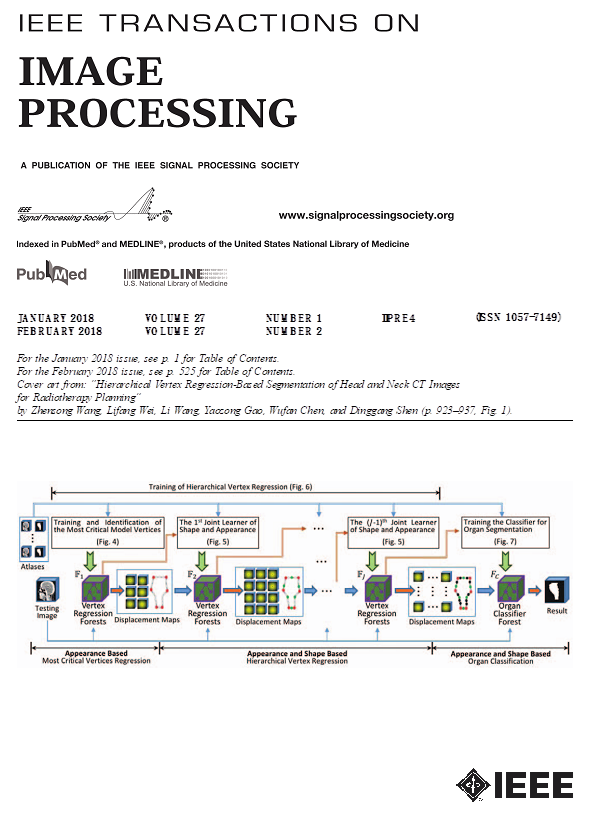Enhancing Feature Learning with Hard Samples in Mutual Learning for Online Class Incremental Learning.
IF 13.7
1区 计算机科学
Q1 COMPUTER SCIENCE, ARTIFICIAL INTELLIGENCE
引用次数: 0
Abstract
Online Class-Incremental Learning (OCIL) aims to solve the problem of incrementally learning new classes from a non-i.i.d. and single-pass data stream. Compared to the offline setting, OCIL is much closer to a live learning experience requiring higher model update frequency at less computational budget. Due to its one-epoch training constraint, the model is likely to learn non-essential features and encounter the under-fitting issue, which severely affects the model's stability. In this paper, we investigate how to use hard samples to improve data variability, eventually enhancing feature learning and addressing the under-fitting problem. Specifically, by introducing a scoring function assessing the sample value, we build an OCIL formulation that simultaneously generates high-value samples and optimizes the OCIL model, improving generalization ability within the constraint of single-epoch training. Empirically, we found that strong data augmentation is a simple but effective way to generate a higher proportion of high-score samples. To make the most of these augmented samples, we design an OCIL model based on mutual learning with two networks of identical structures. Moreover, a collaborative learning mechanism is developed by aligning the features and class probabilities from the two networks to promote their interaction. Extensive experiments on three widely used datasets for OCIL have demonstrated the effectiveness of our method, obtaining superior performance to state-of-the-art methods. The code is available at https://github.com/susususushi/SDA-MCL.在线课堂增量学习中互学硬样本增强特征学习
在线课堂增量学习(Online Class-Incremental Learning, OCIL)旨在解决从非课堂中增量学习新课程的问题。和单通道数据流。与离线设置相比,OCIL更接近于实时学习体验,需要更高的模型更新频率和更少的计算预算。由于模型的训练约束是一历元,容易学习到非必要的特征,遇到欠拟合问题,严重影响模型的稳定性。在本文中,我们研究了如何使用硬样本来改善数据变异性,最终增强特征学习并解决欠拟合问题。具体而言,通过引入评估样本值的评分函数,我们构建了一个OCIL公式,同时生成高值样本并优化OCIL模型,提高了在单历元训练约束下的泛化能力。从经验上看,我们发现强数据增强是生成更高比例高分样本的一种简单而有效的方法。为了充分利用这些增强样本,我们设计了一个基于相互学习的OCIL模型,该模型具有两个相同结构的网络。此外,通过调整两个网络的特征和类别概率,建立了一种协作学习机制,以促进它们的相互作用。在三个广泛使用的OCIL数据集上进行的大量实验证明了我们的方法的有效性,获得了比最先进的方法更好的性能。代码可在https://github.com/susususushi/SDA-MCL上获得。
本文章由计算机程序翻译,如有差异,请以英文原文为准。
求助全文
约1分钟内获得全文
求助全文
来源期刊

IEEE Transactions on Image Processing
工程技术-工程:电子与电气
CiteScore
20.90
自引率
6.60%
发文量
774
审稿时长
7.6 months
期刊介绍:
The IEEE Transactions on Image Processing delves into groundbreaking theories, algorithms, and structures concerning the generation, acquisition, manipulation, transmission, scrutiny, and presentation of images, video, and multidimensional signals across diverse applications. Topics span mathematical, statistical, and perceptual aspects, encompassing modeling, representation, formation, coding, filtering, enhancement, restoration, rendering, halftoning, search, and analysis of images, video, and multidimensional signals. Pertinent applications range from image and video communications to electronic imaging, biomedical imaging, image and video systems, and remote sensing.
 求助内容:
求助内容: 应助结果提醒方式:
应助结果提醒方式:


